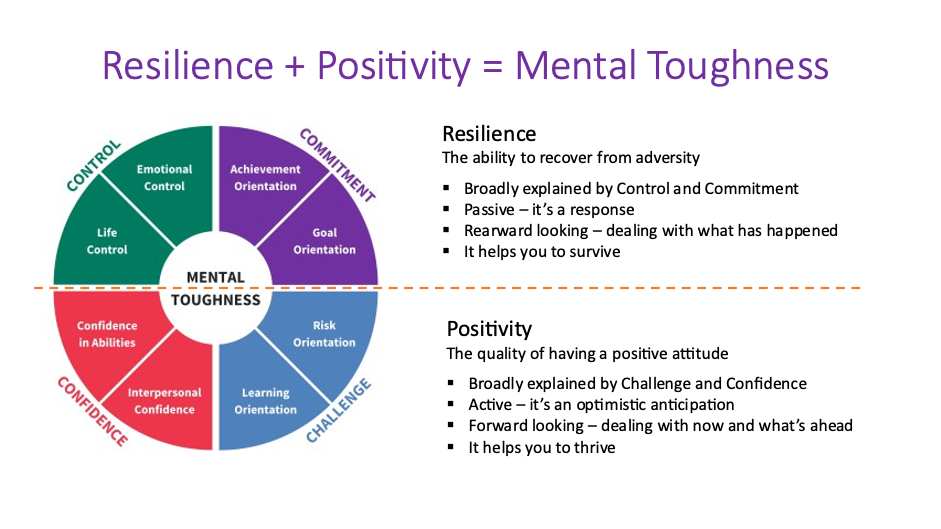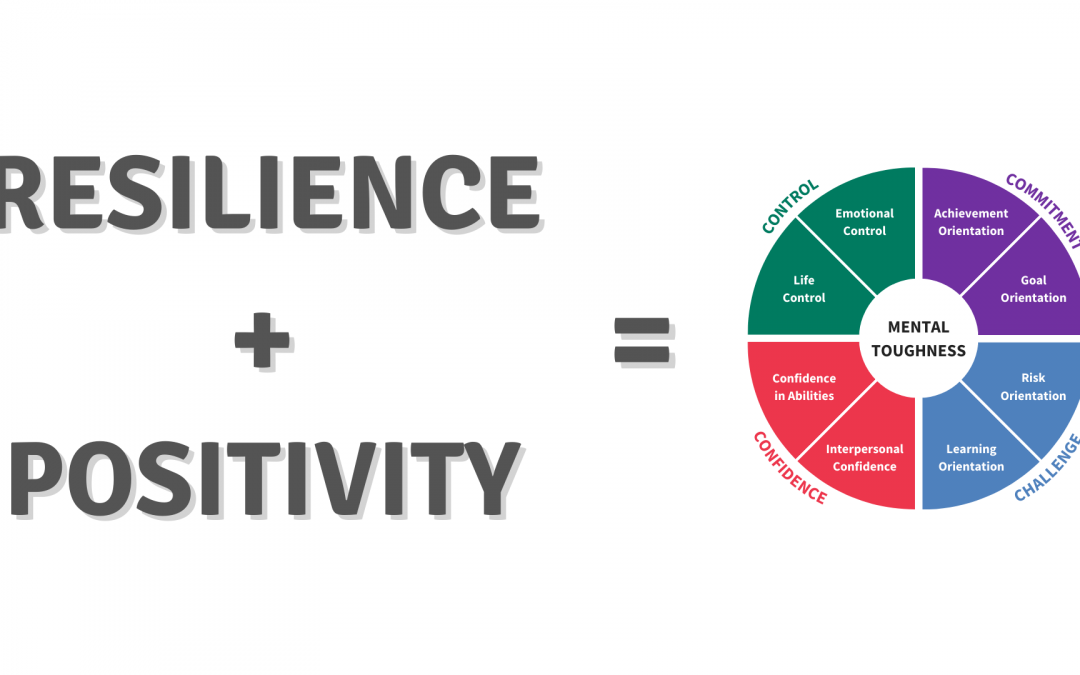There is a tendency for people now to try to attempt to redefine Resilience. This is unnecessary. Resilience is its own concept, and it is a valuable and important quality in its own right. If we change its meaning, we can easily lose sight of what we are doing.
The main reason for trying to change how we understand resilience appears to be the development of advanced concepts such as mental toughness, mindset and learned optimism that pay homage to resilience but clearly suggest there is something more to be understood here. They are not types of resilience; they embrace resilience.
The pioneer for this understanding was an American Psychologist called Suzanne Kobasa. She picked up on work from Health Psychology where Resilience was closely defined along the lines of “the ability to respond to adversity.” What this suggested was that resilient individuals were able to cope with adversity when it arose.
The Cambridge University dictionary defines Resilience quite precisely as “the ability to recover from an adverse situation”
Close examination pointed to something significant. If an adverse situation arises, and the person copes with it, they can be, and are, described as resilient. To deal effectively with a setback or problem in this way is a useful, valuable, and desirable quality.
But that doesn’t necessarily mean that they are positive about the experience. They may have simply gritted their teeth and got on with it – because “needs must” for instance.
Without something else coming into play, overexposure to setback and adversity could, and often will, wear down the individual.
In its purest form, resilience could be considered a passive or perhaps, a neutral quality. “I am resilient because I have to be resilient.” Not “…. because I want to be ….”. This is an altogether different slant on understanding the range of mental responses to the world around you with its real and potential threats and setbacks.
It is this that Kobasa began to understand and explore with her idea of Challenge and to which Professor Peter Clough added the idea of Confidence. This brought into play another perspective on dealing with the world and its challenges – Positivity.
We can now see a difference between “being resilient because you have to be resilient” and “being resilient because you want to be resilient.”
This is where the mental toughness concept comes in. Our overall level of mental toughness is a combination of our resilience and our positivity.
We can summarise that below, using the “pizza” image which shows the eight independent factors that we now know comprise the mental toughness concept.

Resilience can be understood as the ability to recover from adversity. All eight factors can contribute something to that but the most significant are the four factors associated with the Control and Commitment constructs.
In other words, if something goes awry, we can pick ourselves up, dust ourselves off and try to achieve what we originally intended before the adverse event. That could be down to our belief that we have not “lost it” and we can still do it (the Control factors) and that we still want to deliver some or all of what we set out to achieve (both Commitment factors).
If we think and act like this, this is a passive response. It is rearward looking. We are responding to something that has happened. This is about survival.
Nevertheless, it is a valuable quality. Sometimes survival is what we need.
Arguably, most of us would also prefer to thrive. This is where positivity enters the picture.
The Cambridge University dictionary defines Positivity as “the quality of having a positive attitude”.
Suzanne Kobasa, working with resilient managers found that some responded differently to stress, pressure, opportunity etc. Although all seemed resilient, she discovered that some adopted a positive approach to adversity and challenge sometimes even seeking this out.
She found that this predisposition towards exposure to challenge, opportunity and risk often meant that these individuals dealt better psychologically with set-back (and repeated setback). She called this Hardiness to separate it from the idea of Resilience.
With the addition of the idea of Confidence, this has now evolved into a more complete picture called Mental Toughness through the addition of the idea of positivity.
Compared to resilience, it is a more proactive response. It captures the notions of optimism and of anticipation – we know the world has its challenges and threats, but we can approach them positively and perhaps learn how to take them in our stride. We can manage them even if we can’t conquer them.
This is now forward-looking, recognising the challenges at the present time as well as understanding that there will be challenges in the future. We are minded to deal with what lies ahead.
This enables us to do more than survive. It enables us to thrive.
And that is largely down to the Challenge factors – being open to risk and opportunity and not allowing concerns about what lies ahead to get in the way, together with recognising that setbacks will occur but that you can learn from all of them. It is also down to the Confidence factors – having the self-belief in one’s abilities to deal with whatever occurs and feeling you have the toolkit of skills and knowledge to deal with what lies ahead.
The Mental Toughness concept brings these two components together to create a framework to deal with the past and engage successfully with the future.
Ultimately Mental Toughness is defined as “a personality trait which determines in large part how individuals respond mentally to stress, pressure, opportunity and challenge irrespective of circumstances”.
A mentally tough individual sees challenge and adversity as an opportunity and not a threat and has the confidence and positive approach to take what comes in their stride.
It is the recipe for “being the best version of you that you can be”.
For information about becoming a licensed user of the MTQ suite of measures contact: headoffice@aqrinternational.co.uk
The MTQPlus measure is available in 14 languages, accessible to more than 2/3rds of the world’s population.
Completion of the AQR Licensed user training programme is recognised by EMCC and ICF for CPD purposes.
Footnote: Do You Want to Survive or Thrive in Life? There is a fundamental difference between thriving and surviving. Surviving means, “to continue to live or exist,” while thrive can be defined as “to grow or develop well, to prosper or to flourish.”. When so many of us claim to have a goal of thriving, many of us are still surviving.
That is largely down to not understanding how to transition from surviving to thriving. The mental toughness concept and framework is a major contributor to understanding and development.


